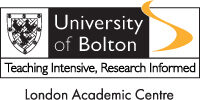The BSc (Hons) Computing with Foundation Year is a flexible and far-reaching undergraduate course designed to support you with focused attention, industry insights and excellent IT resources.
This engaging and flexible Computing course with Foundation Year draws on key elements from other study pathways to give you a wide-ranging, industry-informed programme.
As you progress, you will have the opportunity to ‘zoom in’ on aspects of the subject that you have personal interests and strengths in, or that support your career or study goals. Our foundation year offers an excellent grounding in the fundamentals of computing, programming and mathematics. It’s designed to prepare you for degree level study.
Regent College London have an excellent team of highly experienced lecturers which provide meaningful and personalised interaction with our dedicated and enthusiastic students.



